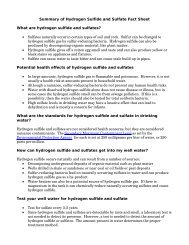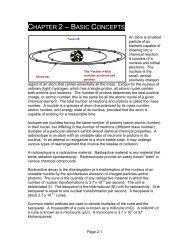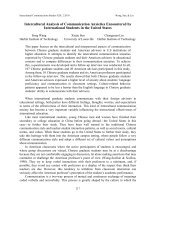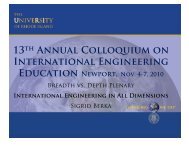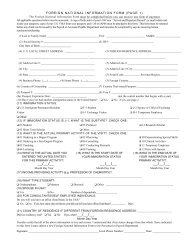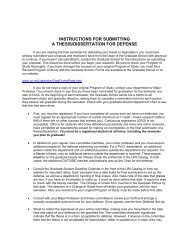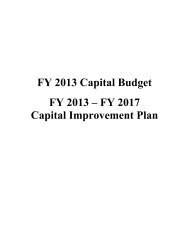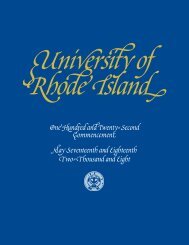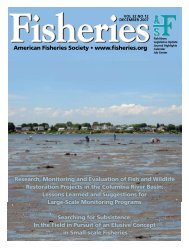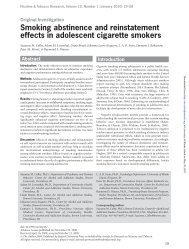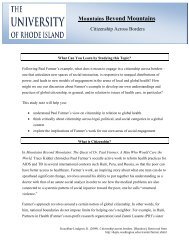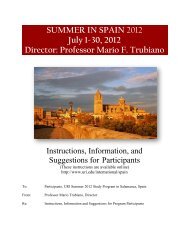Mountains Beyond Mountains
Mountains Beyond Mountains
Mountains Beyond Mountains
You also want an ePaper? Increase the reach of your titles
YUMPU automatically turns print PDFs into web optimized ePapers that Google loves.
<strong>Mountains</strong> <strong>Beyond</strong> <strong>Mountains</strong><br />
Study Guide<br />
Common Questions from Students<br />
• Feelings of inspiration, guilt, frustration. Students often ask: While Paul Farmer’s work is admirable,<br />
can I really make a difference in the world? Would I be willing to make the necessary sacrifices? If<br />
what’s most important is serving the poor, then what exactly am I doing here?<br />
• Farmer’s family and personal sacrifice. Students frequently raise concerns about Farmer’s family<br />
life. Isn’t Farmer primarily responsible for the well-being of his immediate family? Shouldn’t he be<br />
spending more time with his wife and daughter?<br />
• Problems or injustices that are closer to home. Some students suggest that Farmer’s efforts would be<br />
more appropriately directed to public health projects in poor communities in the United States.<br />
Justice and Injustice<br />
Misfortune and injustice<br />
We typically think of some events as examples of misfortune or bad luck, and others as cases of<br />
injustice. And we tend to assign blame and hold people responsible in the latter kinds of cases. This<br />
tendency is often supported by the thought that while it might be good or charitable to respond to<br />
suffering which results from misfortune, it is not wrong (or unjust) not to do so. Is this true? How do you<br />
draw the line between misfortune and injustice? How do you think Paul Farmer would understand this<br />
distinction? To what extent is being born into poverty in Haiti’s Central Plateau, or being diagnosed<br />
with active tuberculosis there, a case of bad luck? To what extent is it instead a case of being subjected<br />
to various injustices?<br />
Structural violence<br />
We often associate violence and injustice with actions that are deliberately carried out by individuals.<br />
But injustices are also produced and sustained through institutions, social structures and systems of<br />
power. In a recent book, Paul Farmer adopts the term “structural violence” to refer to assaults on human<br />
dignity and constraints on human freedom that result from historically given social and economic<br />
conditions such as extreme poverty and racism. Can you think of an example of structural violence from<br />
<strong>Mountains</strong> <strong>Beyond</strong> <strong>Mountains</strong>? Who is responsible for structural violence? Who is responsible for<br />
global political and economic structures that harm the poor? Who is responsible for structural violence<br />
against the poor in Haiti?<br />
Resource guide 1. (2005).Retrieved from http://www.sju.edu/tisju/mbm/resource_guide1.html
Indifference and passive injustice<br />
Kidder writes that, according to Farmer, the “most fundamental” error is the “‘hiding away’ of<br />
suffering. ‘My big struggle is how people can not care, erase, not remember’” (MBM, 218-9). Are we<br />
guilty of a kind of passive injustice by not responding adequately to those who suffer from violence,<br />
poverty and treatable disease?<br />
Liberation theology<br />
How would these questions concerning injustice, indifference, moral responsibility and structural<br />
violence be addressed from the perspective of “liberation theology” (MBM, 78-81)?<br />
Faith and Vocation<br />
Faith<br />
How would you describe Paul Farmer’s religious faith? How does it inform his work? Why does<br />
Farmer feel a “need to believe” (MBM, 85)?<br />
Sainthood<br />
Some have called Farmer a saint (MBM, 16). Is this characterization justified? What aspects of Farmer’s<br />
life seem saintly? In what ways does Farmer seem not to fit the paradigm of a saint? Should we attempt<br />
to imitate Paul Farmer?<br />
Vocation<br />
How has Farmer’s childhood and education prepared him for a life of service? What do you think that<br />
Farmer meant when he told Kidder that he was “fully formed at twenty-three” (MBM, 84)? Are you on<br />
your way to being “fully formed”? Do you anticipate that your time at Saint Joseph’s will contribute to<br />
your formation? How?<br />
Hard choices<br />
How do you think Farmer would respond to the suggestion that, given his notoriety and social capital,<br />
he would more effectively serve the poor by spending less time with individual patients in Haiti and<br />
more time doing organizational and advocacy work in international public health? Could you imagine a<br />
similar dilemma in your own life? How would you handle it?<br />
Resource guide 1. (2005).Retrieved from http://www.sju.edu/tisju/mbm/resource_guide1.html
Other Themes and Questions<br />
Consider Farmer’s work in a broader institutional context: How would you describe Farmer’s leadership<br />
style? How is his work at Partners in Health made possible by the work of Ophelia Dahl, Jim Kim, Tom<br />
White and many others?<br />
Reflect on Farmer’s sense of himself as a doctor, an anthropologist, an advocate for the poor, and an<br />
American: Does Farmer succeed in integrating these various roles into a unified life? Is Farmer happy?<br />
Which roles are most important to his identity and why?<br />
Discuss what it would mean to adopt a “preferential option for the poor” in U.S. law and policy: What<br />
measures would be required in the areas of education, public health, or immigration?<br />
Examine Kidder’s technique of using the stories of individual patients in order to explain Farmer’s<br />
mission as well as social conditions in Haiti: Which story did you find most compelling, and why? Why<br />
do you think that Kidder chooses to tell the story of John in the final pages of the book?<br />
Focus on the events that drew Farmer to Haiti in the first place: As a college student, how did he become<br />
interested in Haiti? How did this initial interest eventually lead to the founding of Partners in Health?<br />
Consider Ophelia Dahl’s suggestion that “[t]he best thing about Paul is those hikes…You have to<br />
believe that small gestures matter, that they do add up” (MBM, 295): Why are the hikes important?<br />
What does Kidder learn from them?<br />
Reflect on <strong>Mountains</strong> <strong>Beyond</strong> <strong>Mountains</strong> in the context of Jesuit ideals and the mission of Saint<br />
Joseph’s University.<br />
Resource guide 1. (2005).Retrieved from http://www.sju.edu/tisju/mbm/resource_guide1.html



